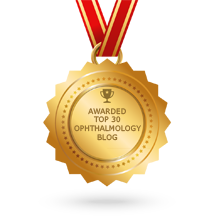
Genes & Eye Diseases
Chromosome 1:
·
Fuch’s dystrophy, COL8A2, AD
·
Posterior polymorphous dystrophy, PPCD2, AD
·
Stickler syndrome, COL2A, AD
·
Gelatinous drop like dystrophy, TYACSTD, AR
·
Schnyder corneal dystrophy, MJNFR, AD
·
EDS, EDS6, AR
·
Congenital glaucoma, GLC3B, AR
·
JOAG, Myocillin, AD
·
Stargardt’s, ABCA4, AR
·
ARMD, CFH1
·
Usher syndrome, AR
·
Chediak higashi syndrome, LYST, AR
·
Leber’s congenital amaurosis, RPE65, AR
Chromosome 2:
·
Congenital Glaucoma, CYP1B1, AR
·
Oguchi’s disease, Arrestin, AR
·
PXE, laminin/fibrillin, AR
·
Autosomal dominant drusen, EFEMP1, AD
·
Fleck dystrophy, PIP5K3, AD
Chromosome 3:
·
BPES 1 (with premature ovarian failure) and BPES
2 (without premature ovarian failure) are caused by type 1 mutations in FOXL2
gene
·
Von Hippel–Lindau syndrome Inheritance is AD
condition caused by a mutation of the VHL gene clusterin
·
Retinitis pigmentosa, Rhodopsin, AD
·
Xeroderma pigmentosa, NER enzyme, AR
·
Alkaptonuria, homogentisate 1-2 dihydroxygenase,
AR
·
Kjer autosomal dominant optic atrophy, OPA1, AD
Chromosome 4:
·
Axenfield Rieger syndrome, PITX2, AD
·
CSNB, PDE6, AR
·
Wolfram syndrome, WFS1, AR
·
Hurler syndrome, alpha L iduronidase, AR
·
Bietti dystrophy, CYP4V2, AR
·
Fraser syndrome, FRAS1, AR
Chromosome 5:
·
Treacher Collins
syndrome (mandibulofacial dysostosis) Inheritance is AD with high penetrance
and variable expressivity, although 60% of cases occur with no family history
and are thought to arise by de novo mutation. The gene involved is the ‘treacle’ gene TCOF1 on chromosome 5q.
·
Cri du chat syndrome
(partial deletion of 5p)
·
Mutations in TGFB1 on
chromosome 5 cause CDB1, CDB2, lattice type 1, lattice type 3A, Avellino, and
granular dystrophy. These are therefore allelic variants.
Chromosome 6:
·
Adult-onset macular vitelliform dystrophy is
caused by mutation in the RDS gene on chrn Dysromosome 6p, as well as the BEST1
gene in common with juvenile-onset Best dystrophy.
·
VEGF
·
Pattern dystrophy, RDS/ peripherin, AD
·
Axennfeld reiger syndrome, FOXC1, AD
Chromosome 7:
·
Galactosemia classic, galactose 1 phosphate
uridyl transaferase, AR
·
Pigment dispersion syndrome, AD
Chromosome 8:
Chromosome 9:
·
Lattice 2, gelsolin, AR
·
Nevoid BCC syndrome, PTCH, AD
·
Rilet Day syndrome, IKBKAP, AR
Chromosome 10:
·
Crouzon syndrome Inheritance is usually AD, but
25% of cases represent a fresh mutation. The gene (FGFR2) has been isolated to
chromosome 10.
·
Thiel behnke dystrophy, AD
·
MEN2B, RET proto-oncogene, AD
·
Gyrate atrophy, OAT, AR
·
NTG-COAG, optineurin, AD
Chromosome 11:
·
Aniridia, peter’s, AD keratitis, Axenfed reiger:
PAX6, AD
·
Nanophthalmos, NNO1, AD
·
Best disease, 11q13 bestrophin, AD
·
FEVR, frizzled 4 gene, AD
·
OCA, TYR/OCA2, AR
·
CFEOM2: 11q13
Chromosome 12:
·
CFEOM-1:
·
Cornea plana, KERA, AR
·
CHSD, DCN, AD
·
Meesman dystrophy, KRT3, AD
·
Fundus albipunctatous, RDH5, AR
Chromosome 13:
·
Retinoblastoma, 13q14, AD
·
Sclerocornea, HCCS, AD
·
Microphthalmos, Trisomy 13
·
Congenital microcornea, AD
·
Oguchi disease, rhodopsin kinase, AR
·
Late onset fuchs dystrophy, FECD2, AD
·
CFEOM-3
Chromosome 14:
·
Oculopharyngeal dystrophy Inheritance is AD
caused by mutation on chromosome 14q.
Chromosome 15:
·
Marfan syndrome: FBN1, AD
Chromosome 16:
·
Posterior Polar Cataract: mutation of PITX3 gene
·
Macular dystrophy, CHST6, AR
·
Pseudo xantoma elasticum, ABCC6, AR
·
Fish eye disease, LCAT, AR
·
Tyrosenemia, tyrosine amino transferase, AR
Chromosome 17:
·
Meesman dystrophy, AD
·
NF1, NF1, AD
·
Cystinosis, CTNS, AR
Chromosome 18:
·
Edwards syndrome (trisomy 18)
·
Transthyretin
Chromosome 19:
Chromosome 20:
·
CHED AD, CHED1 20911, AD
·
CHED AR< CHED2 20p13, AR
·
PPMD2, VSX1, AD
Chromosome 21:
·
Down syndrome (trisomy 21)
·
Homocystinuria: Inheritance is AR with the gene
locus on chromosome 21q.22.3.
Chromosome 22:
·
NF2, NF2, AD
·
Sorsby dystrophy, TIMP3, 22q13, AD
Chromosome X:
XR
·
Fabry disease, alpha galactokinase
·
CSNB, calcium channels
·
Megalocornea, LTBP2
·
Coat’s disease, NDP
·
FEVR, NDP
·
Retinitis pigmentosa, RPGR
·
Choroderemia, REP1
·
Norrie disease, NDP gene on chromosome Xp11.
XD
·
Lowe syndrome, OCRL1
·
Alport’s syndrome, COL4A3
·
Aicardi syndrome
·
Incontinentia pigmenti: NEMO gene on chromosome
Xq28.
·
Ichthyosis, STS
Chromosome Y:
- compiled & published by Dr Dhaval Patel MD AIIMS
